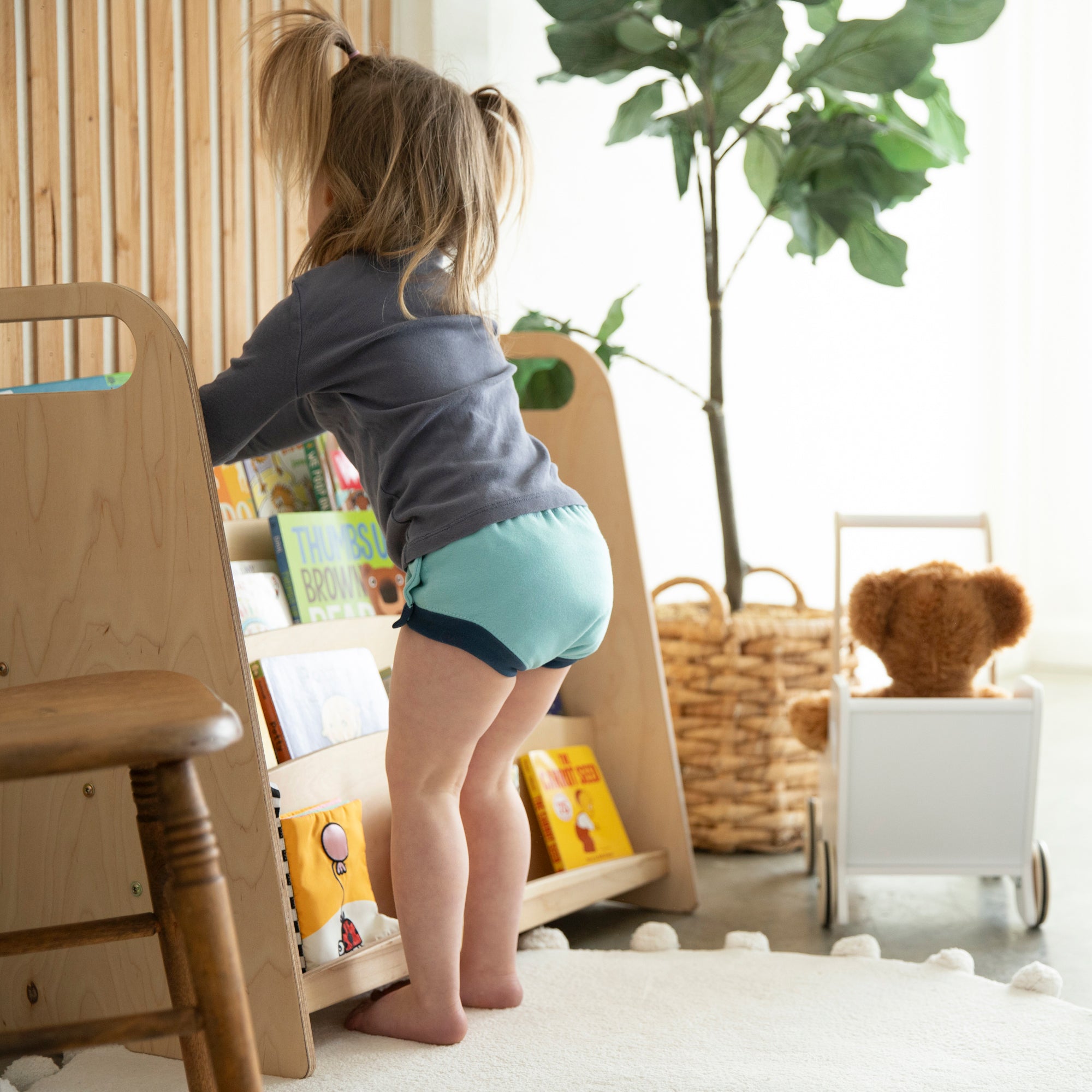Meet your new partner-in-crime: the teacher. While you don't have to get buddy buddy with Teacher, you should realize that their goals are very much your own. They want to care for your child and see to their needs, from basic to educational. As an educator, myself, I can tell you that on a daily basis I look for ways to HELP every child, whether it’s in a learning realm, a social realm, or a physical (“I forgot my lunch!”) realm. We live for your kids.
So, keep an open dialogue with them. Respond to notes or make time to speak with them about concerns. If you cultivate an open dialogue early on you'll have an easier time as years go by. Mutual respect gets everyone a lot further and offers everyone involved an open, positive environment. Cut yourself some slack the first few weeks. I find that when I’m in an emotional rut, I need to do my best not to make things more difficult on myself until I’m back to my usual self. This doesn’t mean totally dismissing my daily responsibilities, but rather not overloading the family’s schedule with unnecessary activities, making family favorites to eat (but not over-complicated meals), and not forcing myself to do heavy duty cleaning tasks. It also involves utilizing shortcuts like slow cooker meals to help. Then, once we’ve found a balance, back to fitting these “extras” in I go! Plan some family time on weekends. Sure, there’s cloth diaper laundry to catch up on and yard work to do and about a thousand other things on your to-do list, but try to cut out just a little slice of time for your family to do something fun. After an entire summer of vacations and playing, it’s hard to transition to “all work, all the time”, so whether it’s a visit to an apple orchard or just some one-on-one Lego time, recharge those batteries together. Filling your “bucket” on weekends helps you get through those long days apart (okay, even if it’s half a day here and there). Get your child involved at home. Even before preschool starts for our family, I feel like we’re often running around doing chores and activities that don’t allow us to spend quality time with our son (having a baby tends to add to that feeling of being pulled in a dozen different directions). And, to be honest, he’s not a patient person. Can’t imagine where he comes by that. *ahem, ahem* So, think about what you’re doing and see if your child can help. Working on laundry? Plop down with your basket and have him help you fold. Making dinner? Have him tear lettuce or wash dishes (one can wish, right?). While you’re at it, strike up a conversation. There are no rules that say quality time can’t be achieved over mundane tasks. Ask your child’s teacher if there’s any way you can help. If you have extra time to spare (believe me, I know most of us don’t, no matter the circumstances!), ask if your child’s teacher would like a hand at all. Most facilities have assistants on staff, but perhaps a “classroom mother” who could help organize holiday parties and help keep other parents in the classroom loop may be a constructive way to get involved. However, if the teacher isn’t interested (there is such a thing as too much help and too many hands), don’t take offense and cheerfully let her know the offer stands. You may even be called upon at a later date. Allow both sides of your child’s world to meet. Whether it’s for your child’s birthday party or just a play date, allow your child the possibility of having a classroom friend over. You can get to know other parents and grow more comfortable with the fact that your little one is blossoming into a little social butterfly.__________________________________________________________
We need to recognize that transitions can be tough on everyone - whether it’s on the part of the child, the parent, or both - and that it’s okay to acknowledge the difficulty. But, the lesson everyone needs to take with them is that transition can be an exciting part of life that everyone needs to learn how to handle. Whether it’s bringing your infant to a sitter for the first time (traumatic!) to sending your child off to school to teaching your child how to drive, every transition marks a triumphant moment in a young person’s development. As a parent, don’t forget to take the time to pat yourself on the back for helping your child reach each new phase. And, yes, it’s still totally okay to cry. What advice do you have to share with any parents dealing with this phase in their child’s life? We’d love to hear in the comments!




